Space in the Imagination: How Comic Books Envisioned the Moon Landing
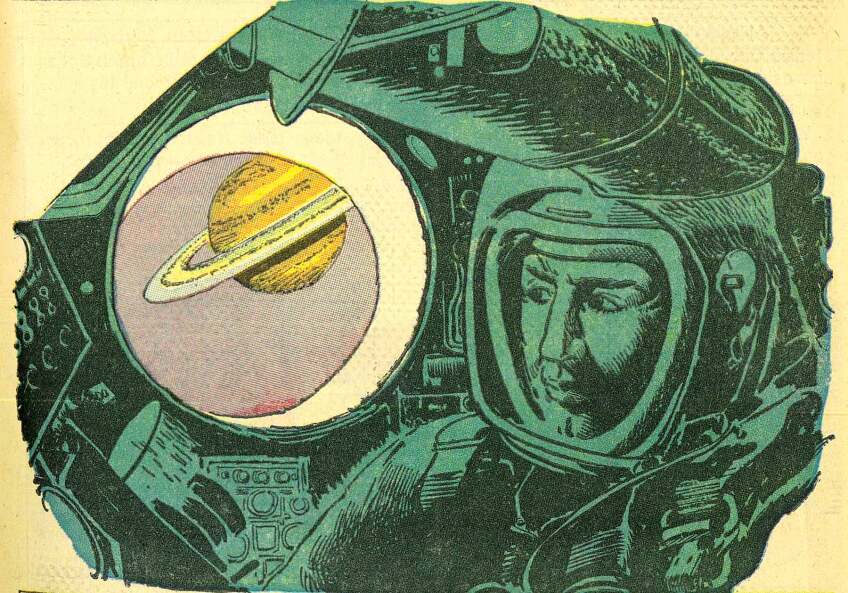

Relive the excitement of man’s first steps on the moon and the long journey it took to get there with 20 new hours of out of this world programming on KCET's “Summer of Space" Watch out for “American Experience: Chasing the Moon” and a KCET-exclusive first look at "Blue Sky Metropolis," four one-hour episodes that examine Southern California’s role in the history of aviation and aerospace.
By the 1950s, America was ready for space travel. Before anyone took the leap though, comic books, film and television were predicting humankind’s forays into the outer limits. In all forms of entertainment, science and technology were weaved into adventure-filled tales that launched little hearts and minds into our galaxy and beyond. Cowboy hats were traded in for plastic domes as girls and boys dismounted spring loaded horses and turned their attention to the heavens.
We were not in the dark about our solar system, and the mode by which we would arrive on the moon was only slightly mysterious (recent developments in rocketry had given us a pretty good idea.) In fact, by the 1960s we were actively sending people into orbit. The method by which we could realize the dream of standing on the moon was becoming clearer by the day.
Comics made within the two decades leading up to the moon landing were almost a guarantee to young readers, offering as much science fact as science fiction; The tiny dot patterns, like stars, forming the universe in our collective imagination. A collection of pre-moon landing comic books reveals this stratospheric excitement that surrounded humankind’s first forays into space, get a glimpse of a few pages below:

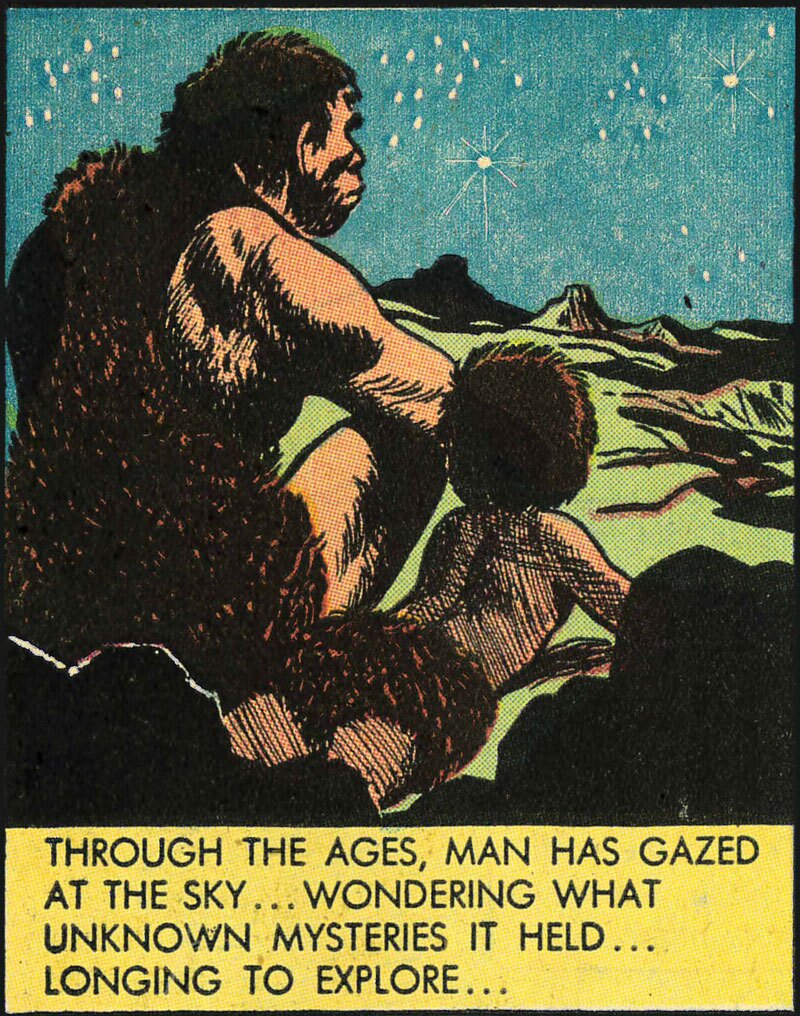
No doubt, Walt Disney had a hand in making Americans believe it could be done. After all, how could Walt be wrong? A comic book adaptation of his television series "Man in Space" is the layman's entry into the what and how of space travel. Part science, part prediction, its optimistic outlook and air of certainty drove the nation even closer to the stars.
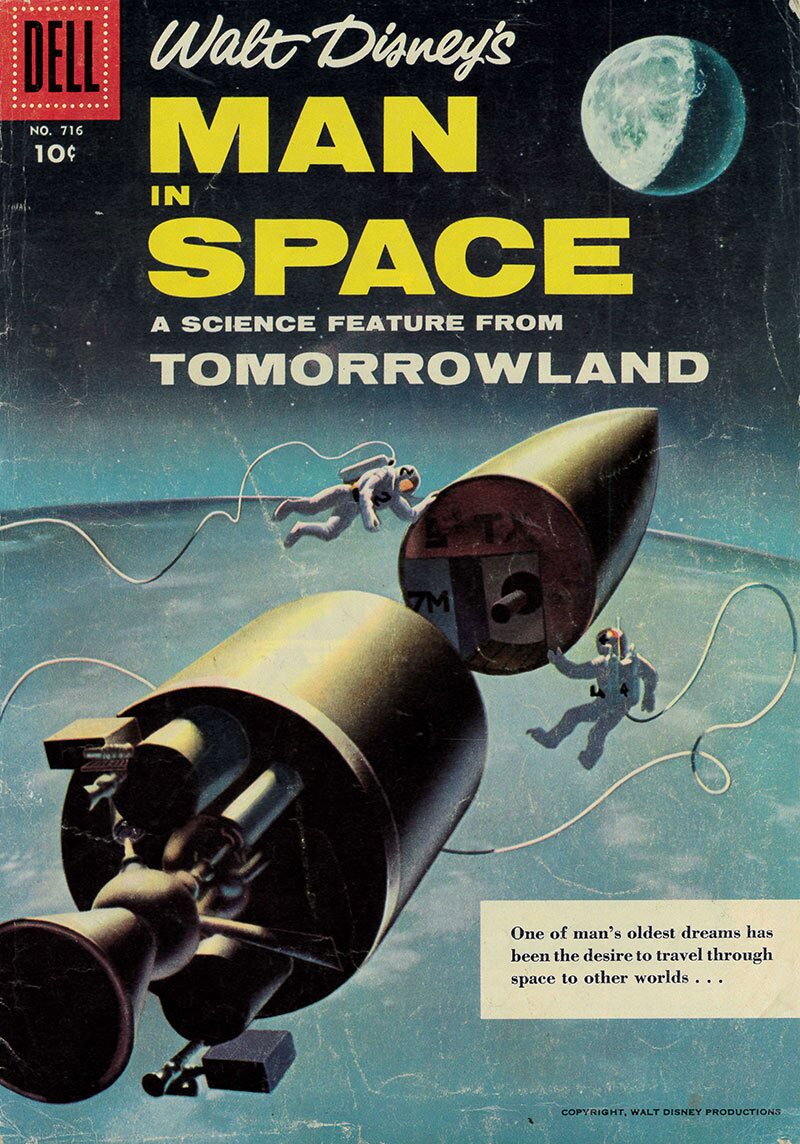
A retelling of Jules Verne's "From the Earth to the Moon" is as surprisingly accurate as it is fantastically fiction, and the fact that the book itself was written a hundred years before the moon landing makes it even more astonishing.
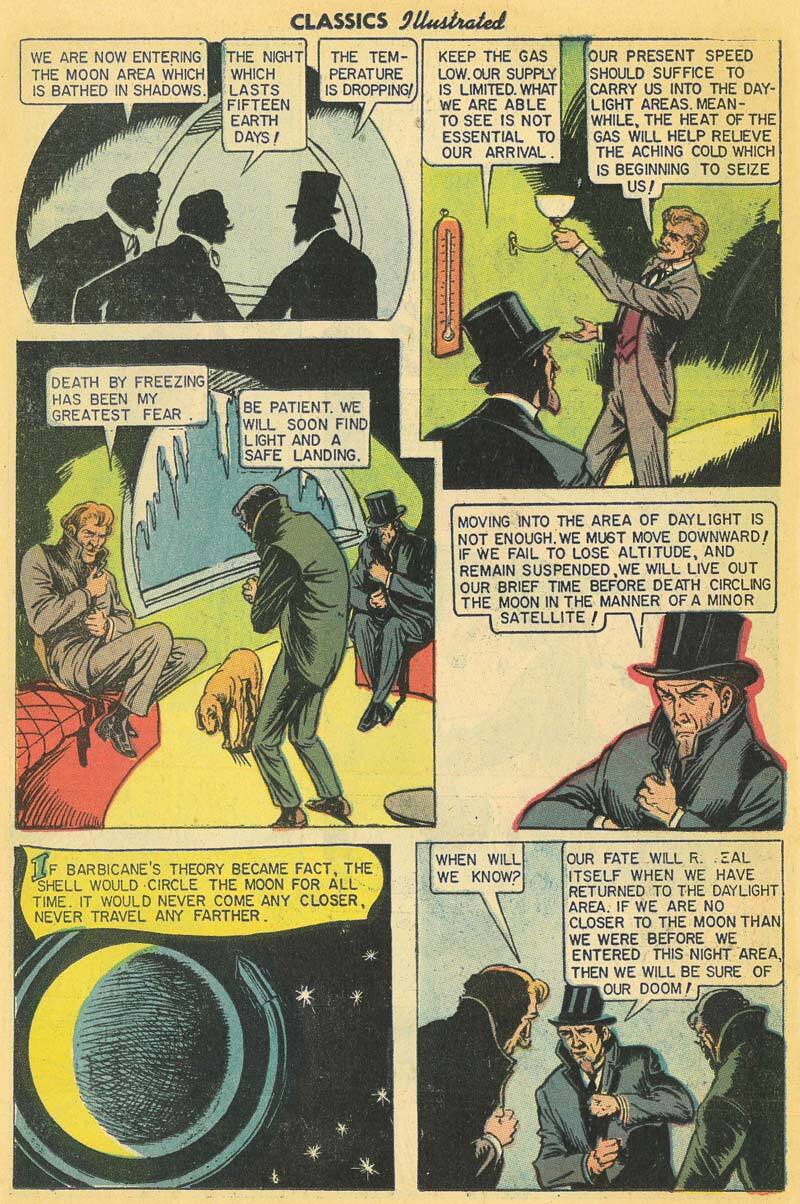



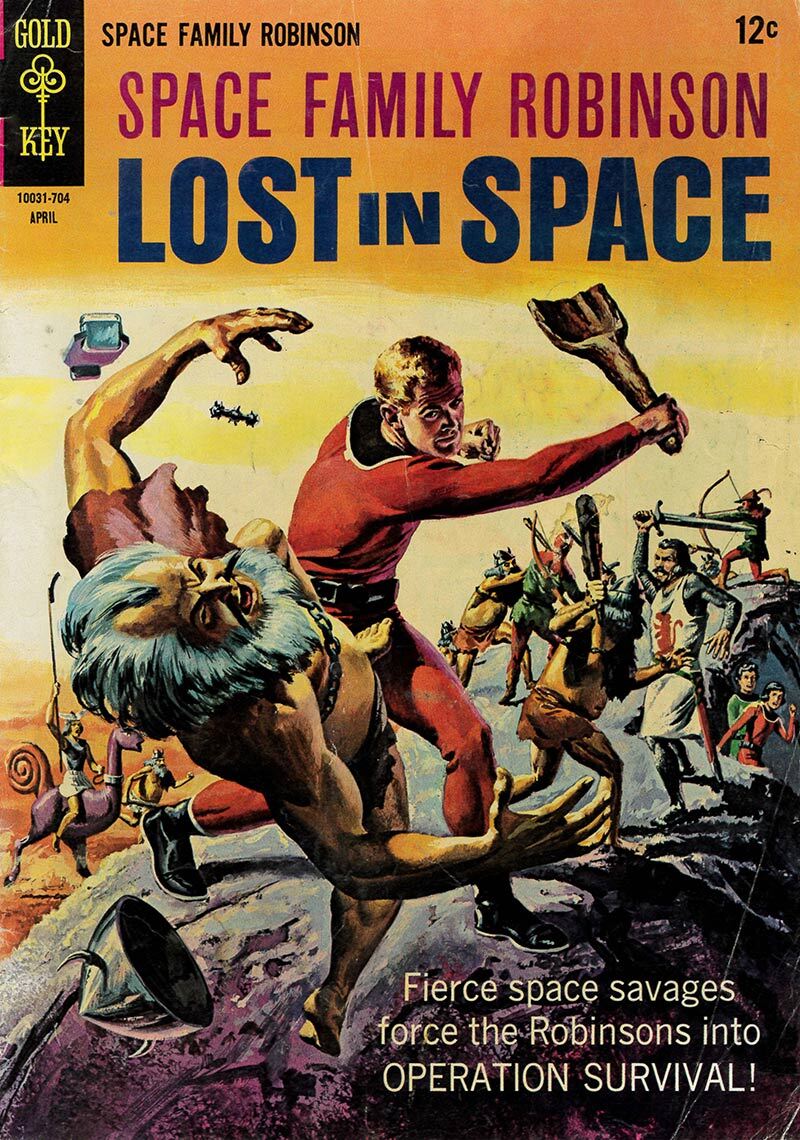

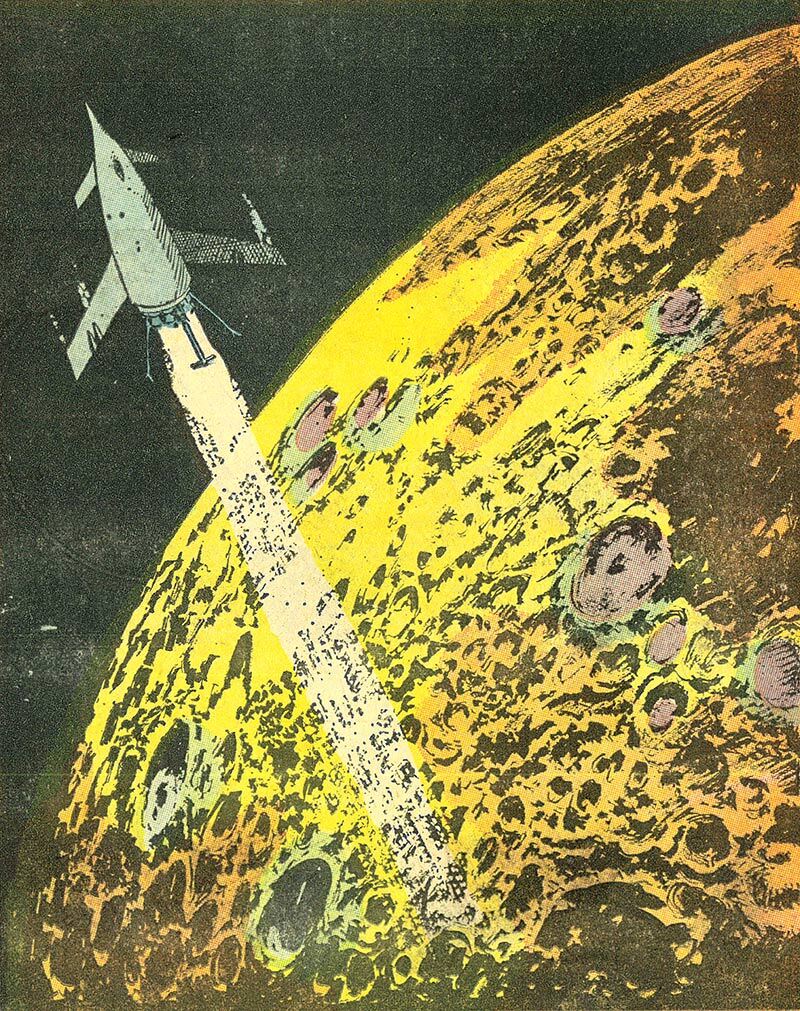
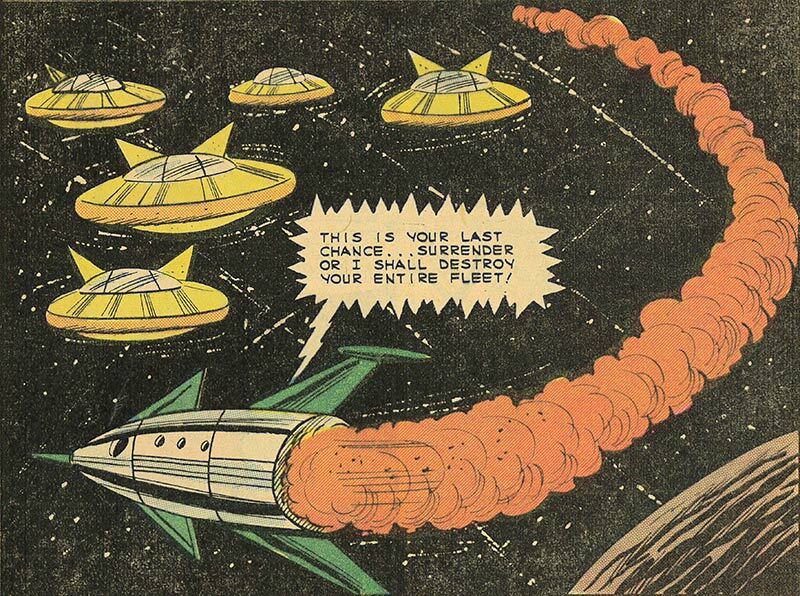
Top Image: To the Stars, Dec 1961
All images from the collection of Henry Cram


